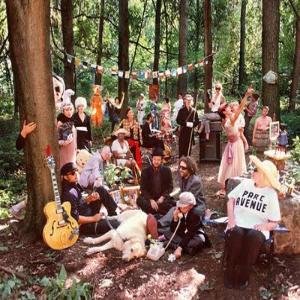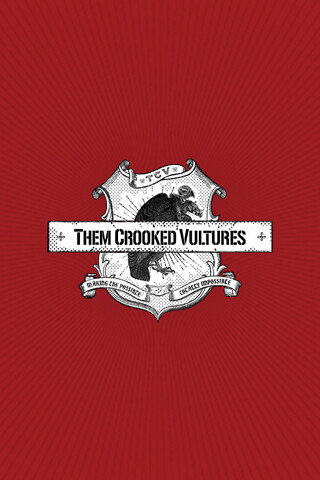In the spirit of this past Record Store Day, I thought it might be fun to write about records and the people who listen to them, and share some of my thoughts about the culture of vinyl and its rapid national and international growth within the last decade or so. Record sales have grown 37% within the last year, translating to somewhere around 12 million records sold between 2014 and 2015 (see The Tennessean, 2015). Why do people continue to buy records? What makes them so unique and desirable?
As a fellow millennial and participant of this growing phenomenon, I feel that I can highlight, with some confidence, aspects of the community often overlooked by the general public. You might be surprised that there are lots of reasons why people (young and old) purchase and listen to vinyl records today — and my take is it actually has very little to do with the sound.
The Collection
I collect records, as do a lot of people. It’s a collecting culture, just like any other. Stamps, figurines, sports memorabilia, etc. But there’s a big difference. Most collections exist purely for the activity and experience of seeking out and collecting the objects. I’d say the collecting dimension of collecting records is secondary, namely because people actually want to listen to them after the find.
The History
The vinyl record format represents a long-ago stage in the modern music industry’s relatively short development. A record is a glimpse of the way music once was manufactured and distributed on a large scale. And, setting aside for a moment its sudden explosive comeback, there was a time when people really didn’t have a choice. This was the most accessible form of a personal listening experience. If you were raised in the CD-ROM and digital age like me, you might deeply appreciate the fact that they’re still around, and currently flourishing as a niche market. Our generation also has the advantage of choosing between digital and analog samples of the same recording with the same ease of accessibility, which creates a more dynamic and enriching listening environment overall.
The Aesthetic
There’s no getting around that digital files offer the listener a convenience vinyl records simply cannot. But, what vinyl lacks in portability and storage, it makes up for in appearance and presentation. Records are big, and as such, they’re each treated as a giant canvas. A large part of the user experience is taking the time to actually look at the thing, and artists and labels know that. So naturally, a big part of record culture is the album art — the cover, the sleeves, the folio, every square inch. It’s a stunning and effective complement to the media stored on the disc itself, and offers a much more personal interface than plugging in a pair of earbuds. Digital files give you nothing — no pictures, no art, no story. Convenience means disconnection, and that’s exactly what you get with digital media. A very quick, detached listening experience.
The Experience
This brings me to one of the most important features of vinyl culture: the experience. Something we lost with the onset of digital media is the physicality of listening. This makes a tremendous comeback along with the record itself. Playing a record means placing it on the turntable (after selecting a side), picking up the needle, setting it on the disc, and watching it play. You’re also more familiar with the content. You’re almost required to be — the ability to skip a track isn’t at the push of a button, which means if you want to be selective, you’ll have to know track order, length, and context (in terms of the entire album). These points are no doubt extremely significant to the artist(s) who ordered them.
The Sound
If somebody tells you they listen to vinyl because it sounds better, they're either confused or lying. It just doesn’t. Different, certainly, and in a good way. But not better. And better than what, exactly? On the whole, manufacturing equipment hasn’t changed since the early ‘80s, and analog pressings are taking a backseat to digital masters (meaning, virtually identical to a digital file). We have far better technology today, so claiming the sound is somehow “better” using outdated techniques and equipment is foolish. In the face of projects like hdtracks and Neil Young’s Pono, it simply cannot be argued. You might enjoy the different texture vinyl offers (as I do), but don't mistake this for technological superiority. It's just another dimension of the aesthetic, plain and simple.
This, however, doesn’t devalue the quality and feel of the sound you get from a record’s output, old or new. It’s fuzzy, dirty, and raw. It feels more intimate. It sounds old, even on modern cuts. Some people claim this is the better way to listen, and I agree. I think of it as an added bonus to an activity I already enjoy for many other reasons.
The Find
Every vinylyte has that one record they've been looking for, patiently browsing through dust-riddled milk crates, periodically checking in with the store clerk, until the day comes when they finally get their hands on the record — of which several hundred thousand copies surely exist — that seemed only to be there, on that day, in that shop, for them. As records are growing in popularity, it’s becoming easier to find the ones you want via Amazon, artists’ websites, or directly from the label. But if you know the feeling of the find, you’ll knowingly ignore these sources. It’s part of the experience, and it’s a large reason why I continue to collect.

These are just a handful of reasons why I think many people choose to listen to records today, even with widespread access to cheaper, more convenient, and more technologically advanced forms of audio content. I’m proud of my record collection, and I’m glad that vinyl is coming back in a big way. I feel that many people misunderstand why we opt for a dated media format, especially those who grew up with records as the norm, and not as some exotic relic of bygone days. It isn’t about owning vintage, one-of-a-kind objects, or being up on the latest trend. It’s about appreciating the privilege to enjoy a superior way of discovering and listening to music. And that’s something the digital age, thus far, really can’t offer.




















